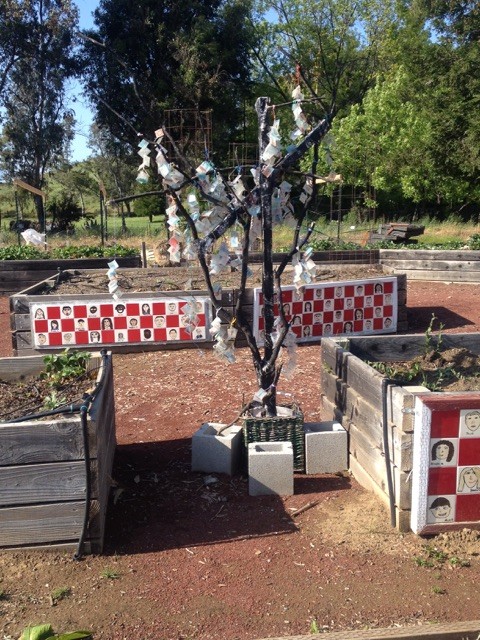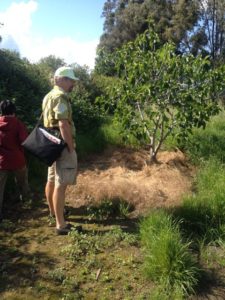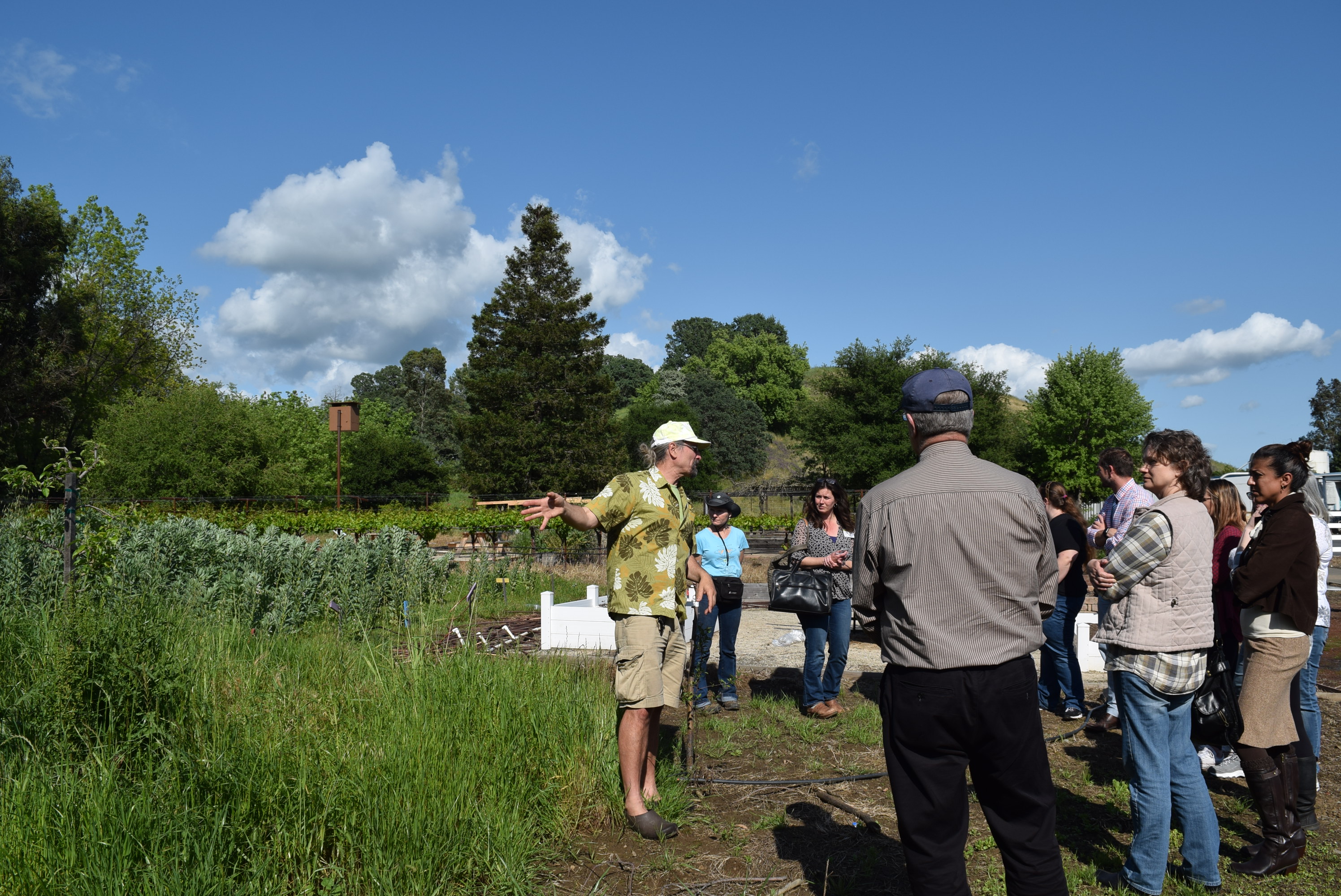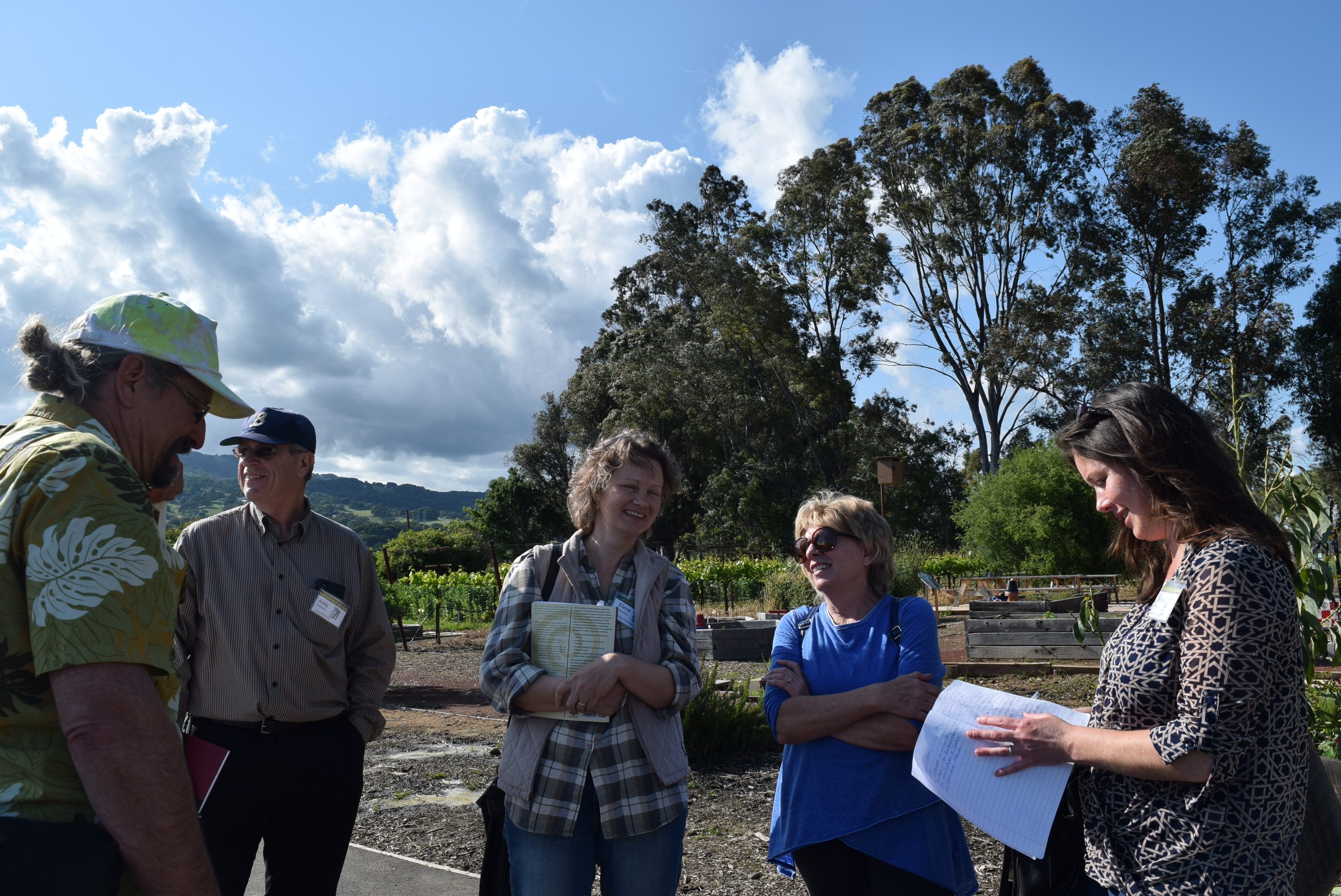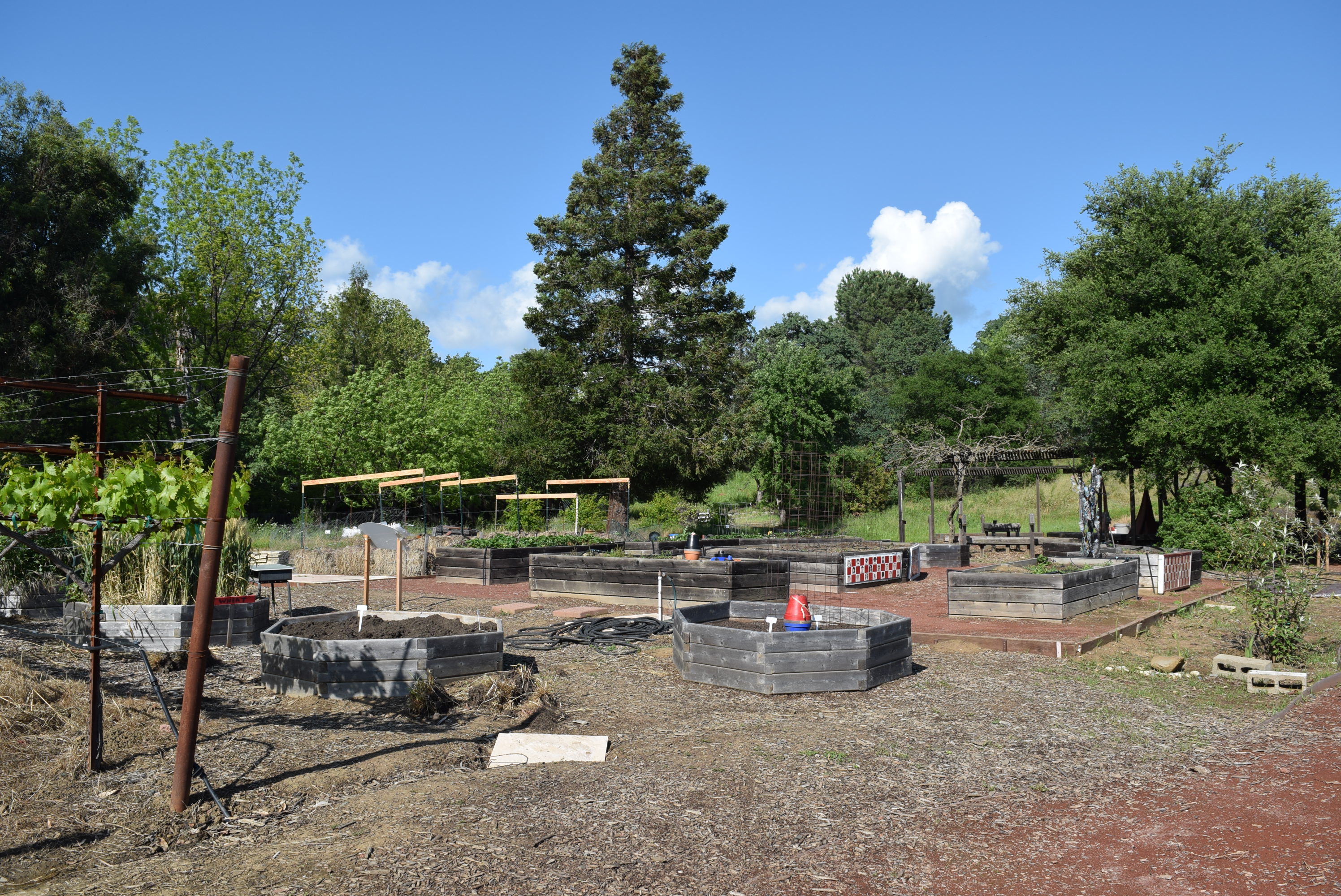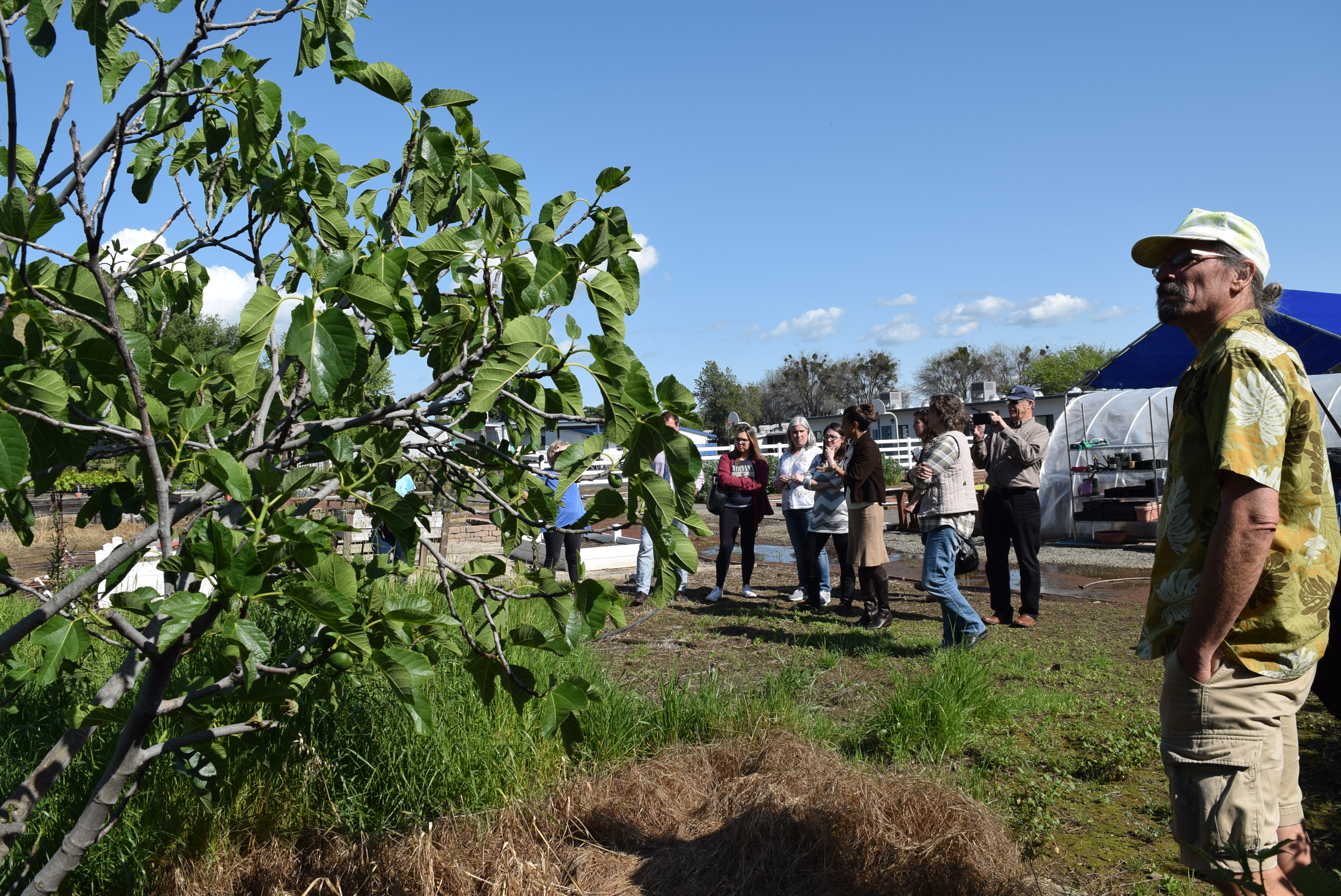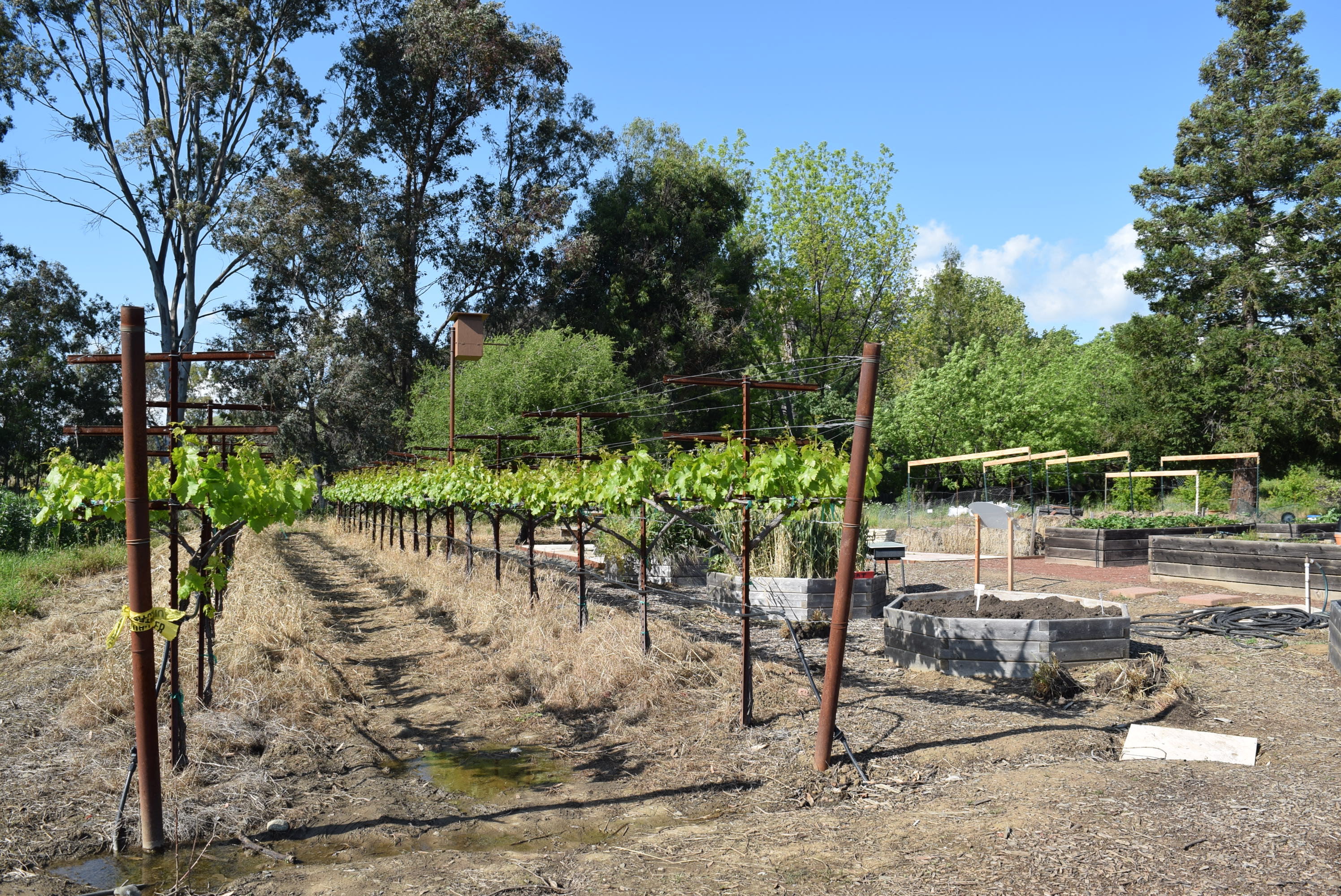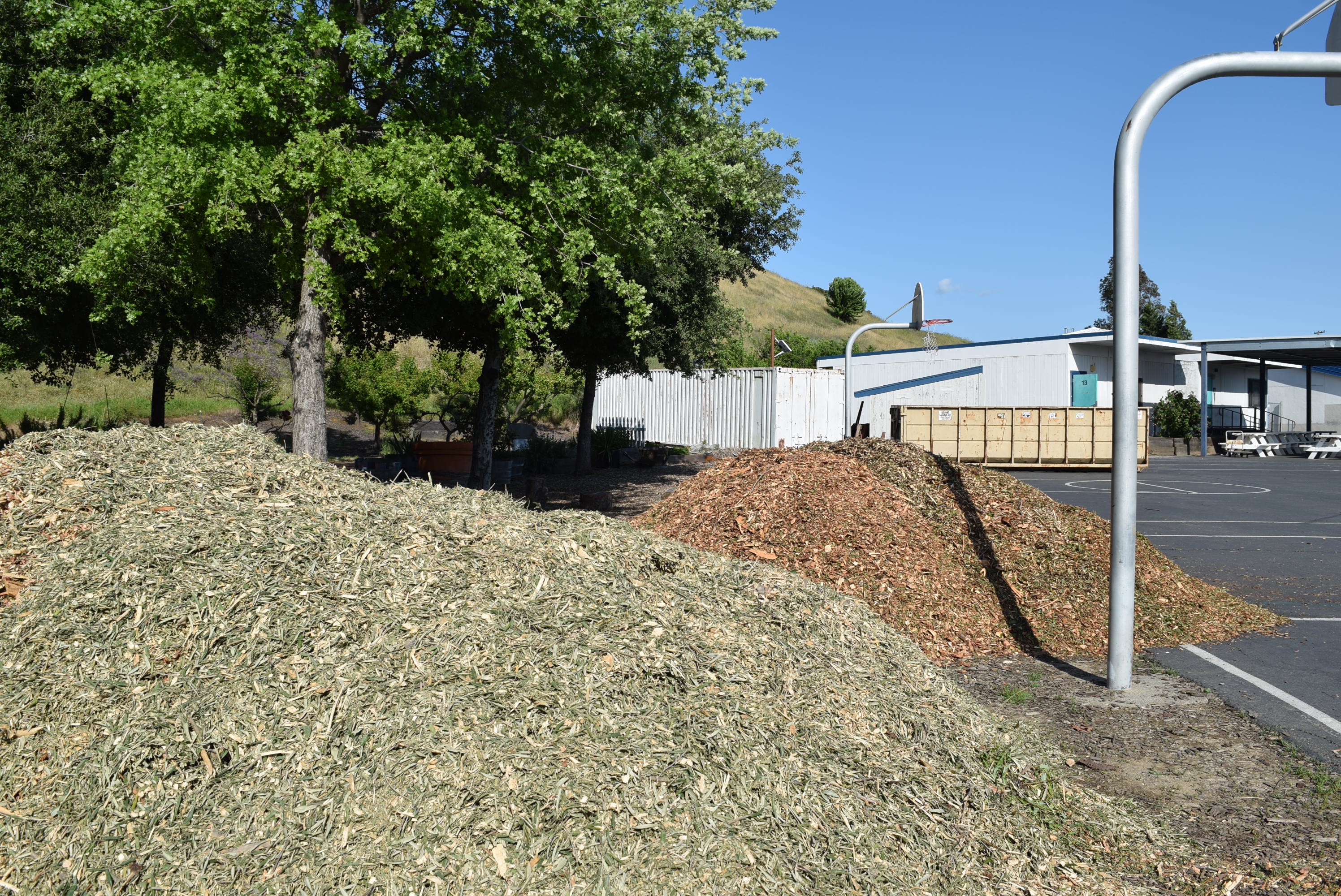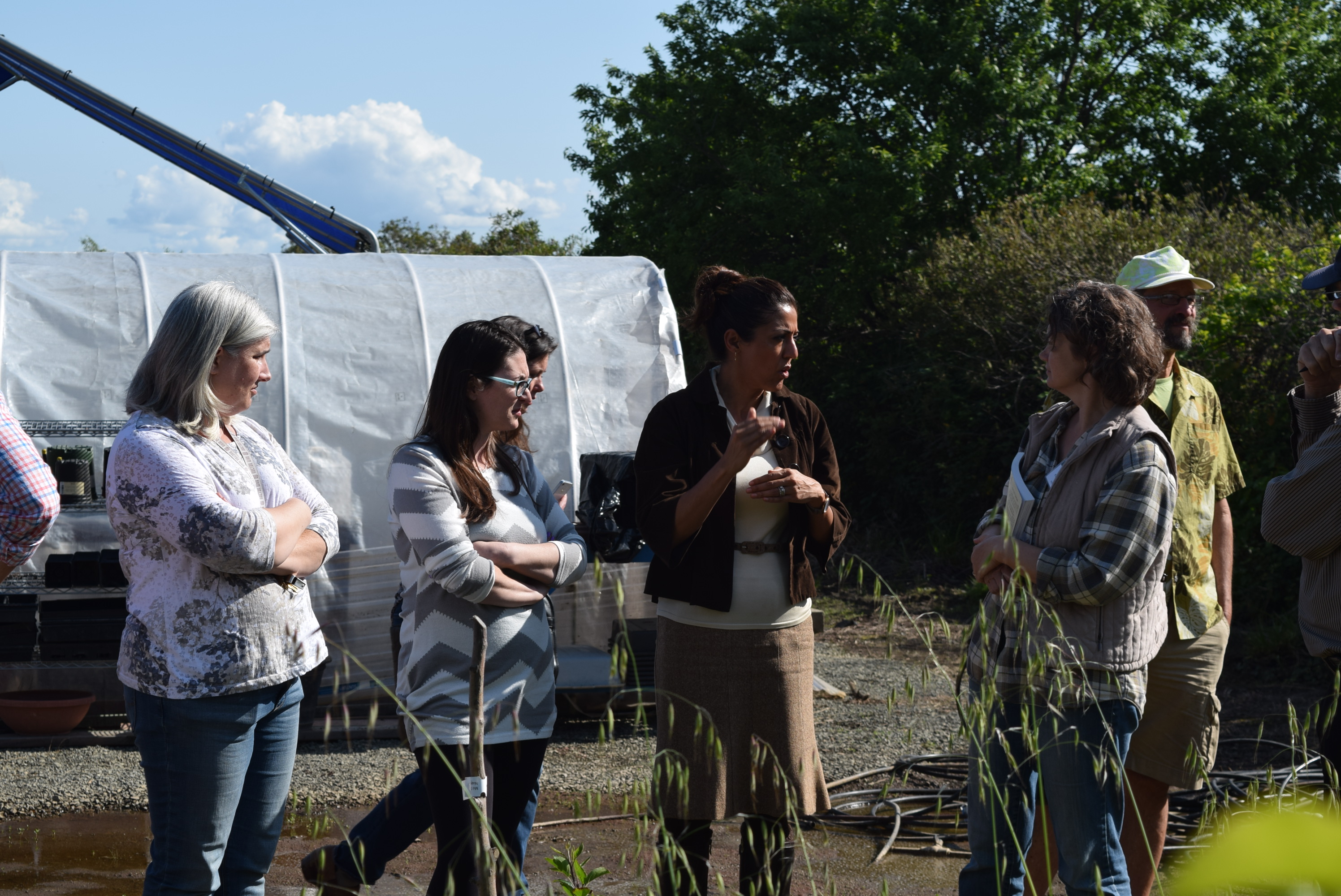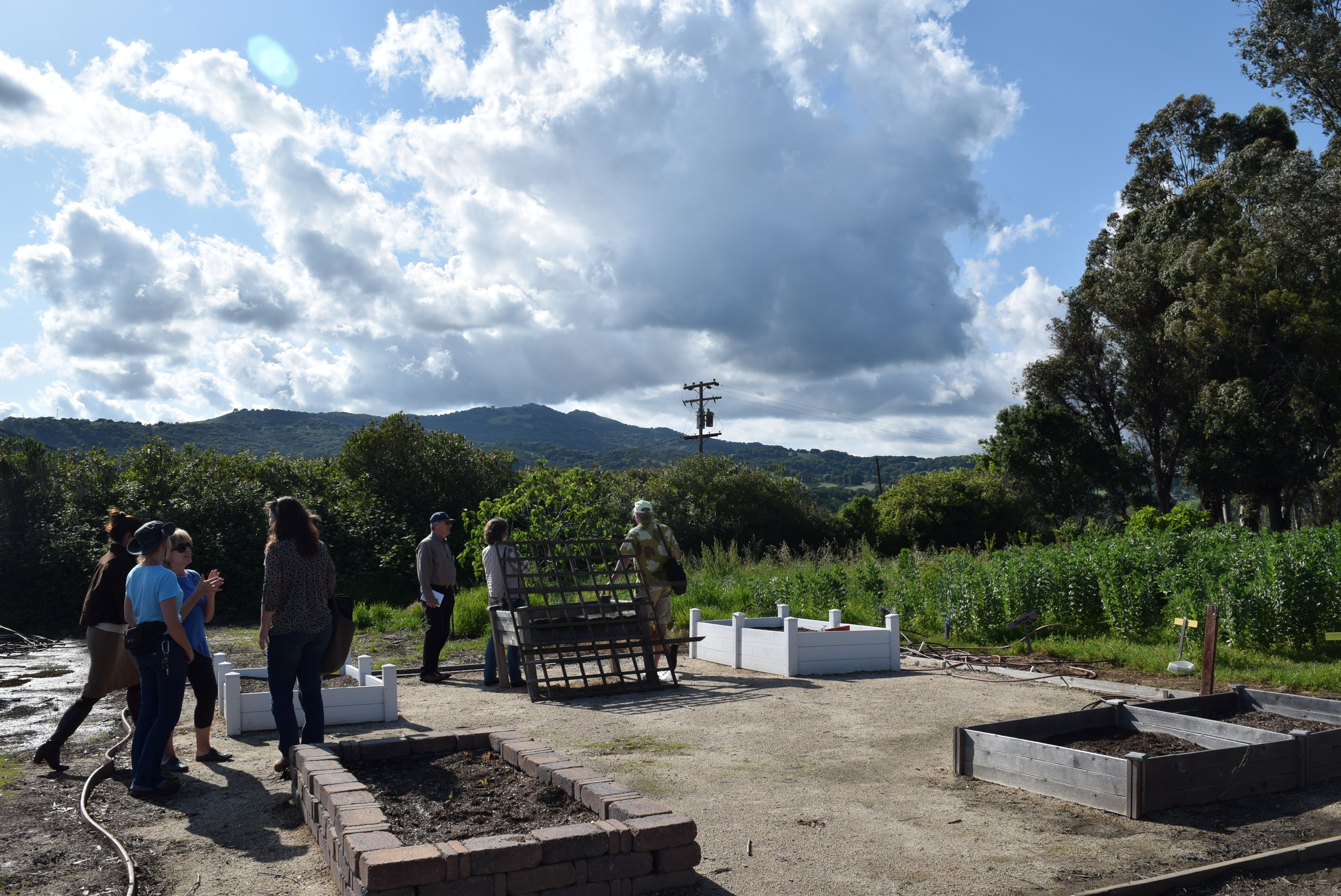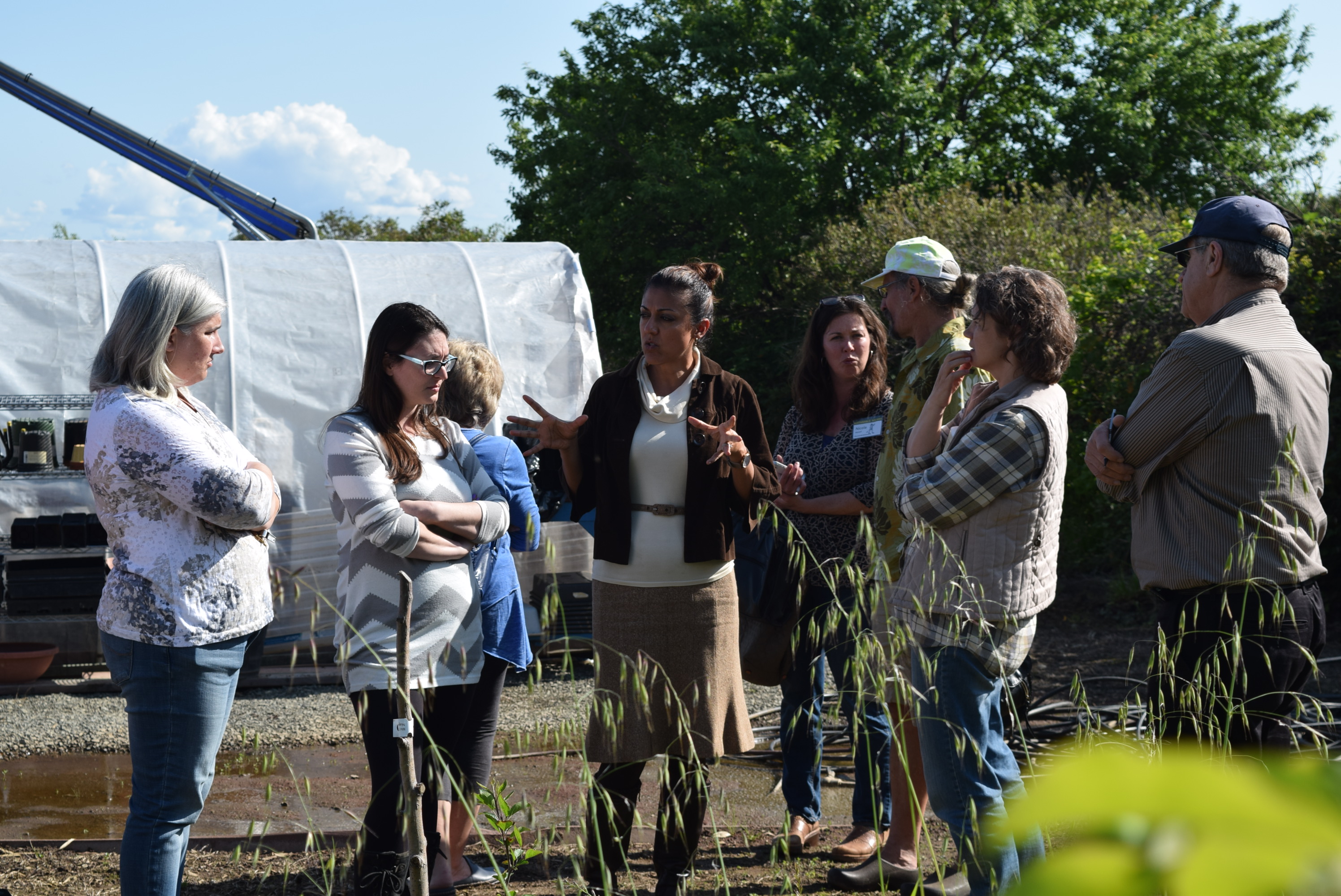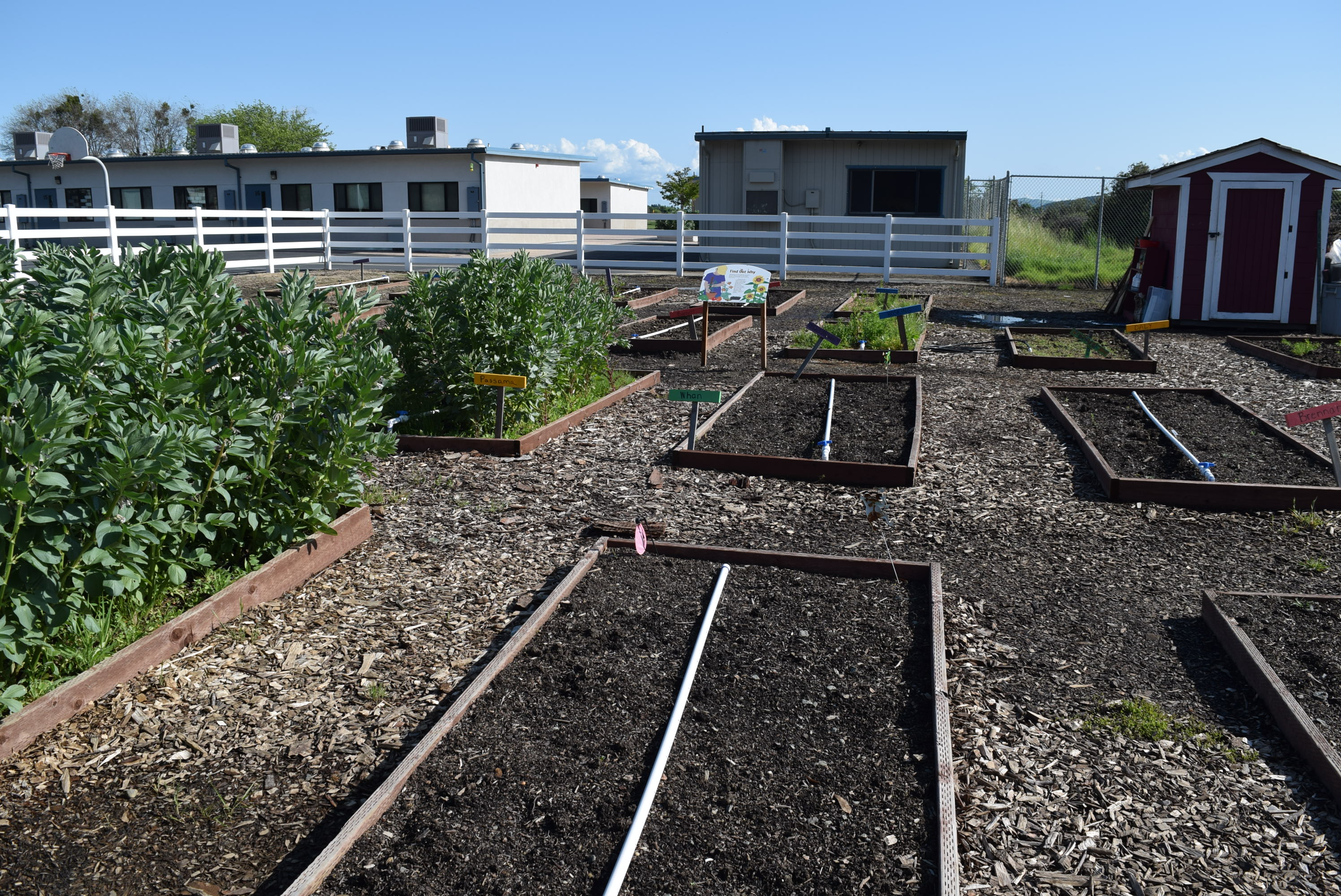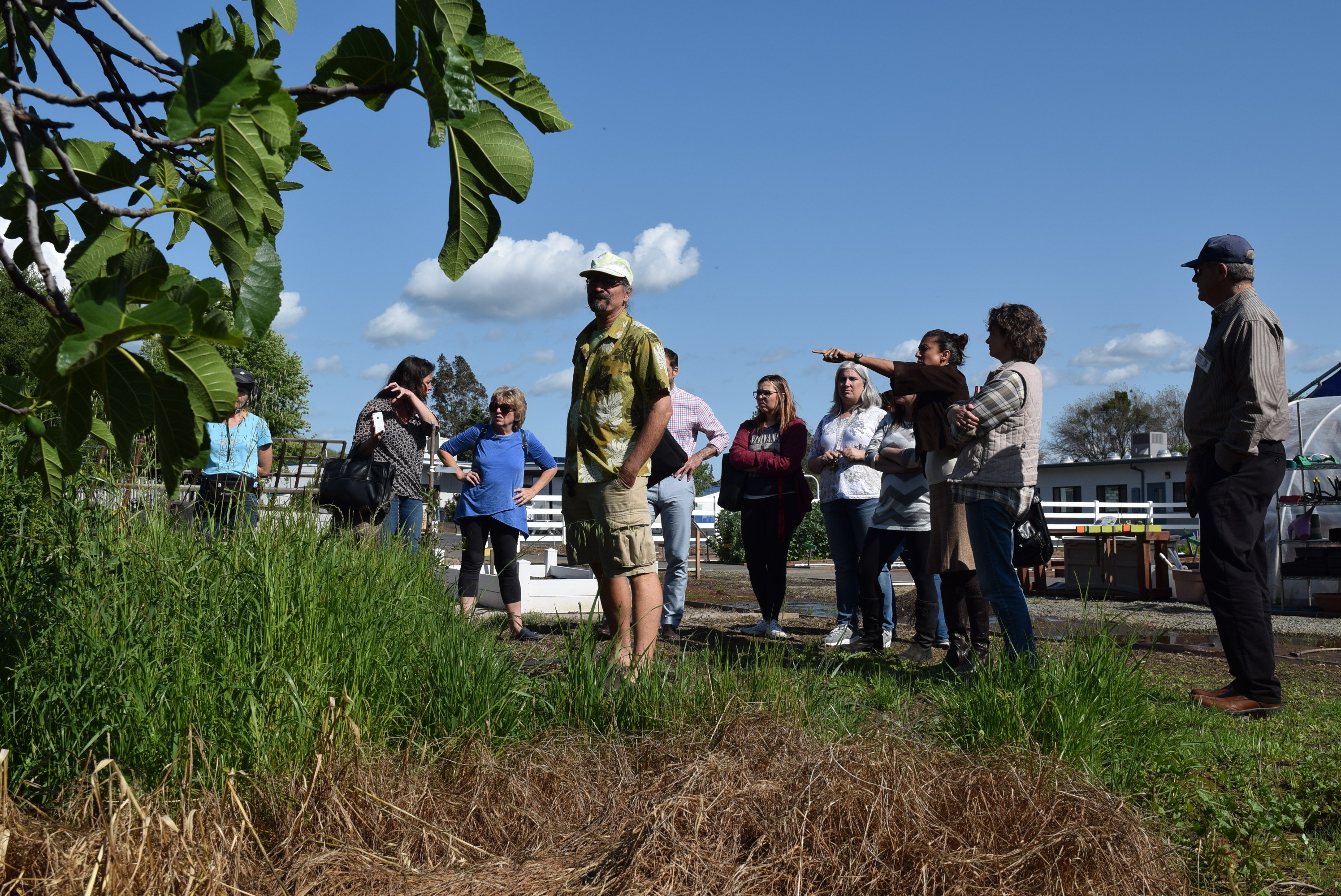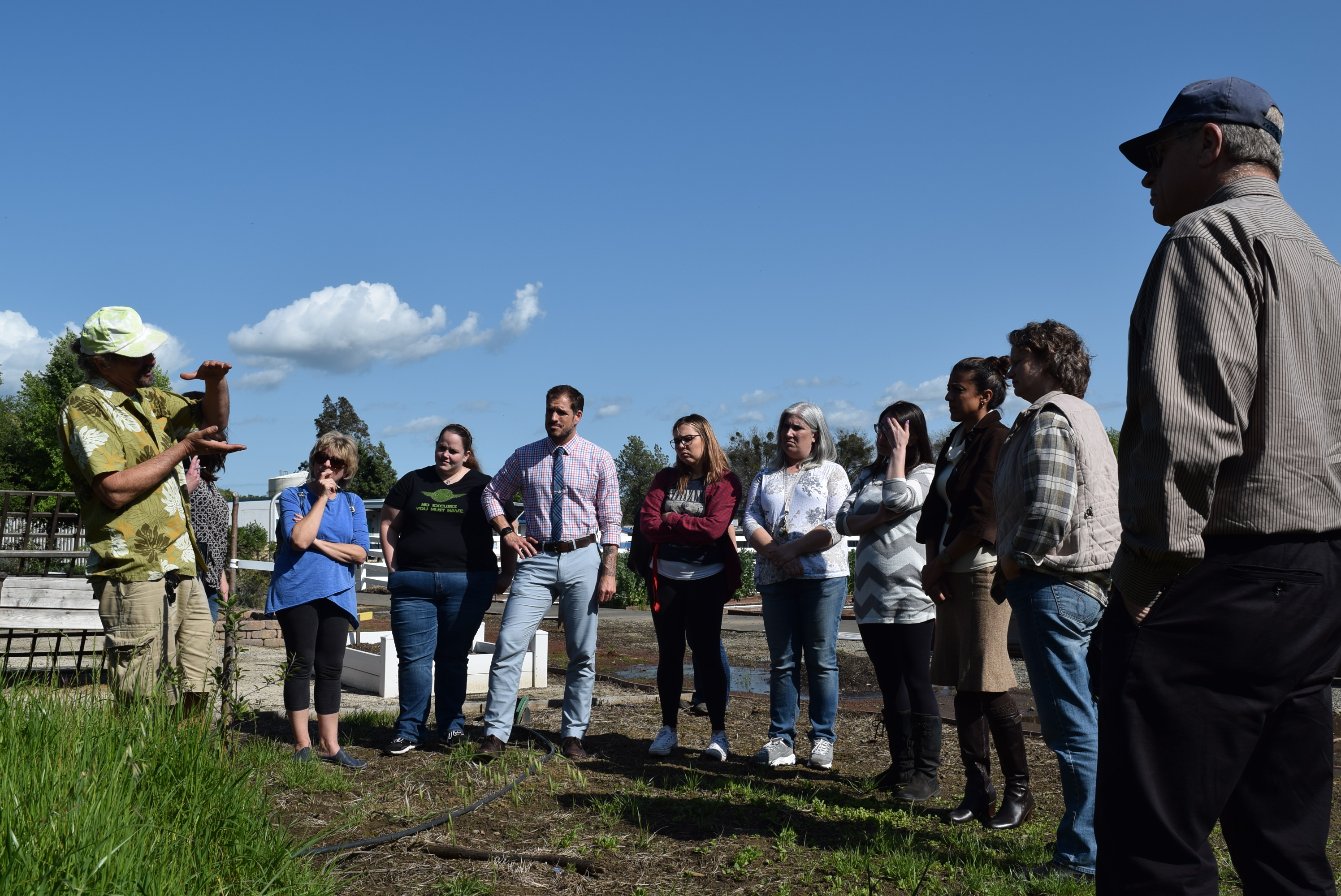Apr 24, 2017
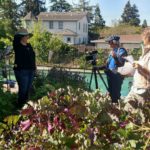
Heather Pierini, Landscape Architecture student at UC Davis and Birds, Bees & Beyond Food Forest Keeper, speaks on camera
Over the weekend, Sustainable Solano, with our wonderful Constance Beutel as camera-woman and director, shot scenes for a Water-Wise documentary video. The video was shot at Birds, Bees & Beyond, one of the Demonstration Food Forests, with commentary from Executive Director Elena Karoulina, Sustainable Landscaping Advisory Board Member Kathleen Huffman, and food forest keeper Heather Pierini.
Sometimes pictures tell a story better than a thousand words. This might be the case – the film shows the three components of our Wise Water approach – rainwater collection in the ground, roofwater diversion to the ground and L2L greywater. You’ll be able to see how these systems were put together and an amazing difference this secondary water makes in this garden. We will use the film for training, presentation, and inspiration. Stay tuned for its release!
Apr 22, 2017
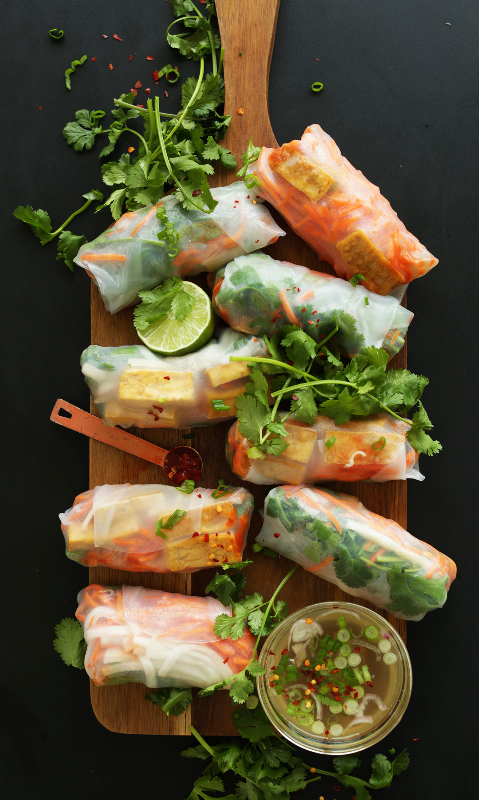 Sustainable Solano, The Vallejo Public Library and U R what U eat have partnered to bring the community a continuation of the What’s For Dinner? cooking and educational series (now in its 5th year). This year’s series features healthy cooking classes and conscious eating book group discussions. The series of cooking classes will take place quarterly and highlight the local and seasonal produce of the four seasons. All programs will take place at the John F. Kennedy Library in downtown Vallejo. The seasonal series of healthy cooking workshops will be taught by Lisa Núñez-Hancock, a culinary arts instructor, natural food chef, food activist and a member of Sustainable Solano’s advisory board focusing on the local food movement.
Sustainable Solano, The Vallejo Public Library and U R what U eat have partnered to bring the community a continuation of the What’s For Dinner? cooking and educational series (now in its 5th year). This year’s series features healthy cooking classes and conscious eating book group discussions. The series of cooking classes will take place quarterly and highlight the local and seasonal produce of the four seasons. All programs will take place at the John F. Kennedy Library in downtown Vallejo. The seasonal series of healthy cooking workshops will be taught by Lisa Núñez-Hancock, a culinary arts instructor, natural food chef, food activist and a member of Sustainable Solano’s advisory board focusing on the local food movement.
The idea behind the series What’s for Dinner? is to educate the community in healthy food choices and give them the skills to make their own delicious and nutritious food from fresh seasonal produce. Starting this Spring, the first of these seasonal cooking workshops-Fresh Out of the Garden will be held on Saturday May 6th at 2pm. Participants in this workshop will learn how to make spring rolls and complimentary sauces utilizing fresh vegetables from the Spring time garden. The workshop will show how this healthy and nutritious recipe can be a go to afternoon snack, light lunch, elegant appetizer or a protein packed anytime meal.
In the second seasonal cooking workshop highlighting the flavors of Summer the series will present Bright and Light Summer Recipes on July 29th. In this workshop participants will learn how to make classic pesto sauce from fresh basil and other healthy variations of this sauce utilizing fresh produce from the Summer garden. This workshop will also teach how to prepare spaghetti squash, a heathy vegetable alternative to pasta. All classes and book group meetings are free and open to the public, and all participants in each workshop will receive a copy of the recipe.
In conjunction with seasonal cooking workshops the series will also include a conscious eating book group. The group will meet four times a year to discuss books relevant to the local and global food movement and healthy eating. For the Spring meeting participants will read Michael Pollan’s Food Rules: An Eater’s Manual. The book group will meet on Wednesday June14th at 6:30pm discuss the book.
 Food Rules is a seminal book for healthy eating chock full of food wisdom. It cuts through all of the confusion and gives people simple guidelines to healthy eating.
Food Rules is a seminal book for healthy eating chock full of food wisdom. It cuts through all of the confusion and gives people simple guidelines to healthy eating.
“Eating doesn’t have to be so complicated. In this age of ever-more elaborate diets and conflicting health advice, Food Rules brings welcome simplicity to our daily decisions about food. Written with clarity, concision, and wit that has become bestselling author Michael Pollan’s trademark, this indispensable handbook lays out a set of straightforward, memorable rules for eating wisely, one per page, accompanied by a concise explanation. It’s an easy-to-use guide that draws from a variety of traditions, suggesting how different cultures through the ages have arrived at the same enduring wisdom about food. Whether at the supermarket or an all-you-can-eat buffet, this is the perfect guide for anyone who ever wondered, “What should I eat?”
Lisa Núñez-Hancock is a culinary arts instructor, natural food chef, food activist and founder of UR what U eat. Lisa has recently moved to Vallejo and is very excited about bringing her skills and knowledge about nutrition, food preparation and the politics around the food movement to the community. She has taught nutrition and healthy cooking classes for over nine years in inner-city after school programs, museums, libraries, homesteading hubs, at community centers, and as part of the Los Angeles Unified School District’s curriculum.
In her mission statement Lisa describes UR what U eat as a culinary program which provides hands-on healthy cooking and nutrition workshops to children, teens and adults. UR what U eat workshops teach basic cooking skills and fundamental principals of nutrition, while utilizing math and science skills as they relate to food preparation. Rooted in the fundamentals of the Slow Food Movement and the writings of Michael Pollan, UR what U eat embraces the philosophy of growing, preparing and eating real food. Workshops take participants through the complete food cycle, while at the same time preserving healthy multi-cultural culinary traditions. It is a program that promotes healthy and conscious eating for the entire family.
Lisa is currently working on a seasonal gardening/cookbook with her co-author Rick Perillo, a master gardener at the MUSE School in Southern California.
Look for updates on the Fall and Winter series workshops and book group selections.
Apr 7, 2017
Often times you find the solution within the problem. We couldn’t find one yard to fit all our educational needs of the demonstration food forest. So with the creative use of our limited funds we will be installing two! The Enchanted Cottage Garden is the perfect front yard location. This yard that is now grass will be sheet mulched and transformed into a food forest. The unique roof of this cottage style home will serve as a great educational opportunity to show how to retrofit gutters to harvest roof water.
The problem is that it can’t receive grey water.
The Ripple Effect which already has many components of a food forest, fruit trees, perennial vegetables, plants that attract the beneficial insects, rain water harvest, artistic/creative use of onsite materials in both the front and backyard. Grey water will be able to be used to water an already existing landscape! This is a great site to show how to add community of plants to support the trees that already exist in our yard!! We will also be installing one fruit tree guild here adding another opportunity to show roof water catchment.
Installation of The Enchanted Cottage Garden will begin on April 29th this day will be hands on learning about setting the basic foundation: swales, berms, roof water harvest, creative use of onsite materials. May 13th will be a day filled with learning about the food forest plants chosen. We will get to have conversations about plant communities working together to benefit each other. Water efficient, basic drip irrigation will also be installed that day. Sheet mulching will be done and the transformation of a lawn into a custom demonstration food forest will be revealed.
May 6th will be spent at The Ripple Effect. The public will get an opportunity to see what can be done with an already existing landscape. This will be a hands-on laundry to landscape grey water workshop. The grey water will be used to water a pre-existing landscape. As a community we will be learning to install one simple fruit tree guild and show diversion of roof water to a swale. We will also talk about what plants could be added to support the existing landscape.
All three days April 29, May 6, and May 13 will be filled with learning about sustainable landscapes through hands-on experience and include a lunch provided by the homeowners!!! Come learn how to save water, grow food and build community!! Registration is required.
April 29th Registration
May 6th Registration
May 13th Registration


 Sustainable Solano, The Vallejo Public Library and U R what U eat have partnered to bring the community a continuation of the What’s For Dinner? cooking and educational series (now in its 5th year). This year’s series features healthy cooking classes and conscious eating book group discussions. The series of cooking classes will take place quarterly and highlight the local and seasonal produce of the four seasons. All programs will take place at the John F. Kennedy Library in downtown Vallejo. The seasonal series of healthy cooking workshops will be taught by Lisa Núñez-Hancock, a culinary arts instructor, natural food chef, food activist and a member of Sustainable Solano’s advisory board focusing on the local food movement.
Sustainable Solano, The Vallejo Public Library and U R what U eat have partnered to bring the community a continuation of the What’s For Dinner? cooking and educational series (now in its 5th year). This year’s series features healthy cooking classes and conscious eating book group discussions. The series of cooking classes will take place quarterly and highlight the local and seasonal produce of the four seasons. All programs will take place at the John F. Kennedy Library in downtown Vallejo. The seasonal series of healthy cooking workshops will be taught by Lisa Núñez-Hancock, a culinary arts instructor, natural food chef, food activist and a member of Sustainable Solano’s advisory board focusing on the local food movement. Food Rules is a seminal book for healthy eating chock full of food wisdom. It cuts through all of the confusion and gives people simple guidelines to healthy eating.
Food Rules is a seminal book for healthy eating chock full of food wisdom. It cuts through all of the confusion and gives people simple guidelines to healthy eating.